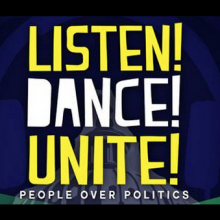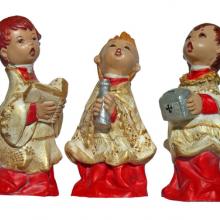sacred music
Last night, the United States Capitol building overlooked an unusually frolicsome scene: a DJ spinning Rihanna and Calvin Harris, glow sticks bobbing on wrists and ankles, and dozens of young people dancing across the soggy West Lawn.
“It’s not the craziest thing we’ve seen at the Capitol,” said a police officer observing the after-sundown boogie. “But I don’t really know what’s going on. I think it’s some kind of Christian dance party.”
The event, billed by organizer Two Planks Productions as the “first-ever dance party held on the grounds of the U.S. Capitol”, sought to bring unity to the nation’s divided capital and “put people over politics” through a night of dance music hosted by Washington DJ Stylus Chris. More than one hundred dancers, including some passers-by, joined throughout the night.
Should the market have so much control over liturgical music?
There is nothing new to this question. Not at all. Now, however, there may be much that is new in discoverng the answer.
Once upon a time in the European West, liturgical music was created by musicians who were supported by the patronage of a noble class.* Byrd, Tallis, you know the gang.
Before then it was the monastic composer (Hildegard, et al) who seemed to rule the charts with their chant. Musicians were supported by the Church and the Wealthy in some way and thus created music for worship.
The old markets, of course, have given way to new markets over the centuries, but throughout the history of the Western marketplace, markets (and the people they represent) have had tremendous say in what music we deem as sacred.
Now, in our post-colonial, neoliberal marketplace, how shall we choose liturgical music?

